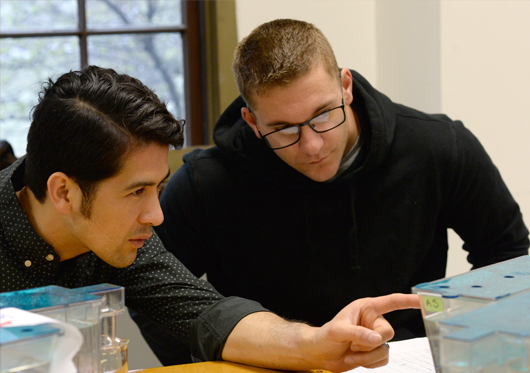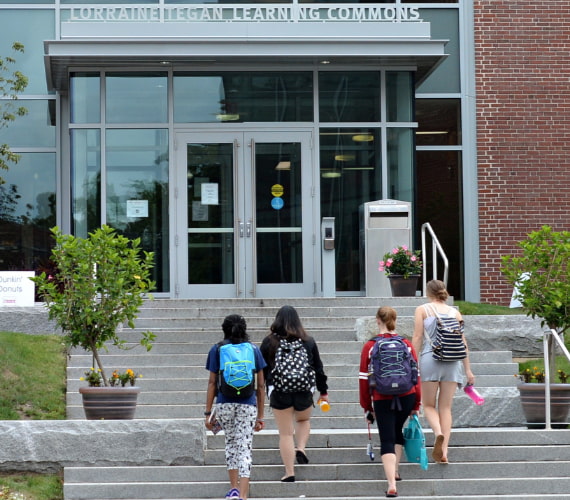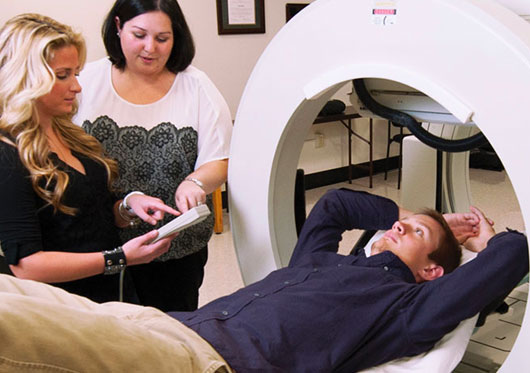There are many reasons that students choose to pursue a bachelor’s degree. Some are driven by a desire to work in a particular career or field; while others might be focused on gaining greater job security or earning a higher salary.
For many students, however, the journey to completing a degree doesn’t always include just one college or university. Instead, students may find themselves completing their degrees at a different school from the one that they started at—for any number of reasons.
To help such students leverage previously earned college credits, some colleges offer bachelor’s degree completion programs. For example, Regis College offers a flexible program designed to fit professional and personal lifestyles, as well as accelerate the bachelor’s completion process.
In order to enroll in such a program, you must first understand how to transfer your existing college credits—a common subject of confusion for students.
When it comes to transferring credits from one school to another, the receiving institution ultimately has discretion as to whether or not the credits will be accepted. Generally speaking, college credits do not expire; however, there are several factors that colleges use to determine their eligibility for transfer.
Typically, schools will evaluate the recency and relevance of previously earned credits, as well as the accreditation of the institution from which they were earned. Here’s a closer look at how to transfer your college credits so that you can complete your bachelor’s degree.
How to Transfer College Credits: Four Steps
1. Research schools.
As with any college search, you should always start by researching the institutions that you are interested in to find the one that is right for you.
Choosing a college to support you toward your goal of completing your bachelor’s degree is a big decision, and you should be sure to find the school that is right for you. In addition to factors like location and reputation, you should also find a school that will provide you with the support you need to reach your goals throughout every step in the journey.
Similarly important, if you are specifically interested in enrolling in a bachelor’s completion program, is to ensure that the schools you are interested in attending offer a course of study that aligns with your personal and career goals.
It is also important to remember that every college will have its own set of rules determining which transfer credits will be accepted. Consider this fact as you begin to compile a list of schools that you would like to apply to.
2. Understand the transfer policies.
Once you have identified a list of schools that you will be applying to, it is important that you understand the transfer credit policies at each institution.
Having a firm grasp on what credits a particular college may accept can help you save time and money in the long run. For example, if you know that one school will likely only accept a handful of credits, it probably won’t be the best choice for you, especially if your goal is to complete your degree as quickly and cost effectively as possible.
Eliminating such schools from your list can save you time and frustration, and allow you to focus on finding a program that is best suited to your individual needs. Understanding these policies ahead of time will also help you prepare for the application process, as well as call your attention to any unique transfer programs offered by each school.
Regis College, for example, has formed a wide range of academic partnerships (also known as “articulation agreements”) that allow transfer students to continue their education or convert an associate's degree into a bachelor’s degree. To do so, Regis accepts the MassTransfer Block which outlines a set of 34 college-level credits that fully transfer when completed with a 2.0 or higher GPA.
After you have completed your college search and researched the transfer policies, you can begin the application process.
3. Gather transcripts and other required materials.
Now, it’s time to apply to your chosen programs. From your research, you should understand the required materials that you will need to submit with your application. Of course, these requirements will vary by school, and sometimes even by program.
“At Regis, we are looking for your official transcripts and a writing sample.” says Kelly Golden, Associate Dean of Student Affairs and Enrollment. The writing sample, or personal statement, is key to explaining why you are transferring and what you hope to achieve by doing so.
To make an impression and prove that you are ready for a bachelor’s degree, “Think about where you did your best work to show that you are ready for our bachelor’s level courses,” says Golden.
In addition to a strong writing sample and transcripts from previous schools, colleges may also require you to submit letters of recommendation, syllabi, or other documentation of your previous coursework.
For example, the requirements for transfer admission to Regis College include:
- Common Application
- Personal statement
- Official high school transcript, official GED, or HiSET Score Report
- Official college transcript(s)
- Letter of recommendation
- Official TOEFL, IELTS, CAE, or Duolingo English Test scores, if English is not your native language
4. Work with an admission counselor.
Finally, in order to successfully transfer your college credits and complete your bachelor’s degree, take advantage of the help that admission counselors can offer throughout the process.
Admission counselors and advisors can help their students achieve their goals by preparing them for the transition and answering any questions that they might have throughout every stage of the admission process.
Kelly Golden also notes that students transferring from a community college can benefit from working with an admission counselor or advisor even before they are ready to transfer. Working with an advisor at both the community college and four year college can help you ease the transition from one school to the other.
“Schools often have agreements about what courses will transfer,” she says. “Be sure to continuously meet with your advisor to stay on track with courses that are needed for the bachelor’s degree rather than spending time in courses that won’t transfer. You can also schedule a meeting with the advisor at the four year college to know what you need to do in advance.”
Working with an admission counselor or advisor also allows you to get the individualized attention that you need to make the transition as smooth as possible, as well as the support you need to achieve your goal of completing your degree.
For example, Gary L’Abbe, Assistant Professor and Program Director for Regis College’s BS in Medical Imaging program, explains that “This is where our programs stand apart. Once you know you want to apply, you can send in your unofficial transcripts and we will create a course map that outlines what the program will look like based on your needs.”
Furthermore, L’Abbe notes, “We try to be as flexible and transparent throughout this whole process as possible. I didn’t get that from my education so it’s important to me that I can give that to our students.”
Beginning the Transfer Process
The benefits of completing your bachelor’s degree are many—ranging from increased salary to improved job satisfaction and more. Many students know, however, that the path to earning a bachelor’s degree isn’t always as straightforward as it seems. No matter where your educational journey takes you though, there are resources and programs available to help you achieve your goals.
If you’ve already earned your associate's degree or have previously earned college credits, there are opportunities to transfer those existing credits toward the completion of your bachelor’s degree. Many colleges, like Regis, offer dedicated bachelor’s completion programs that are specifically designed to help students complete their degrees as quickly and cost efficiently as possible. At Regis, students can choose from degree completion programs including:
For those who are considering enrolling in such a program, L’Abbe’s advice is to schedule a phone call or meeting with someone directly to get the individualized attention they need.
Additionally, Kelly Golden’s advice for students transferring from a community college is to “understand what classes will and will not transfer to save yourself time and money.”
Understanding how college credits transfer early on in the process is important and can be very helpful to students. Once you are familiar with the steps for transferring your credits and ready to begin the process, you can also take advantage of the resources available to help you along the way.












